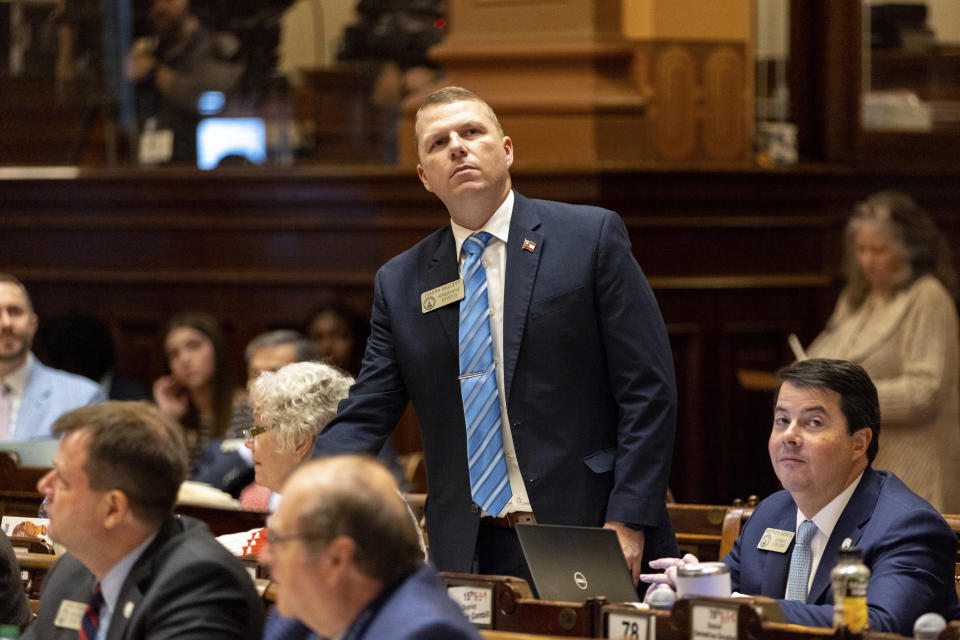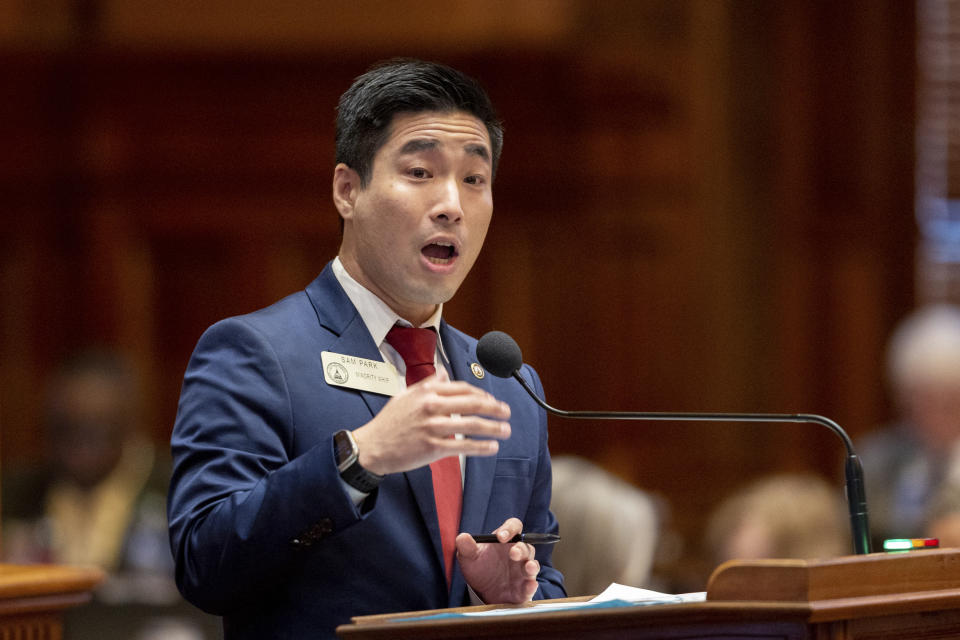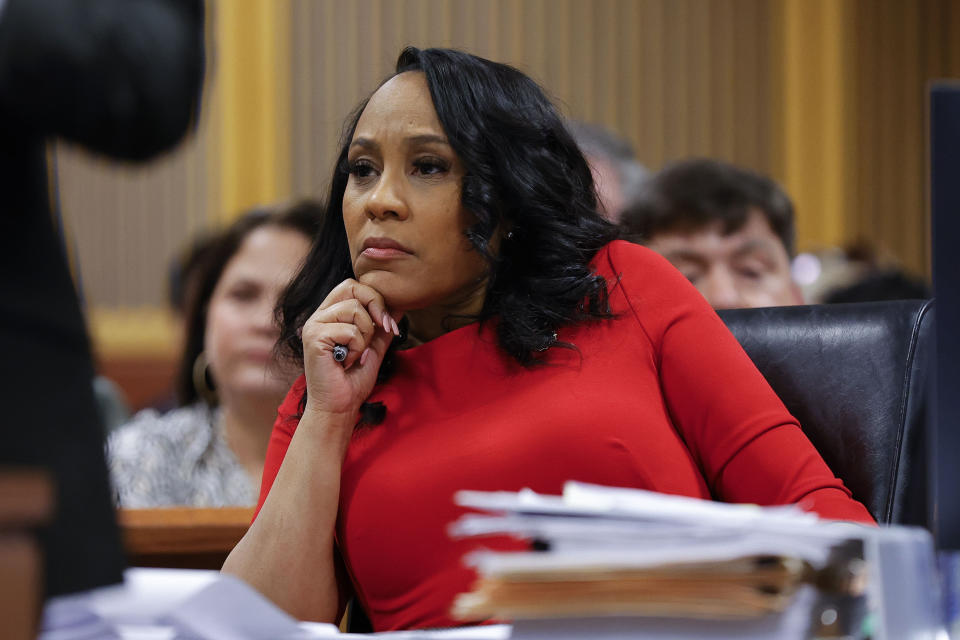Georgia pushes group to sanction prosecutors as Fani Willis faces removal from Trump case
- Oops!Something went wrong.Please try again later.
- Oops!Something went wrong.Please try again later.
- Oops!Something went wrong.Please try again later.
ATLANTA (AP) — A Georgia commission with powers to discipline and remove prosecutors needs only Gov. Brian Kemp's approval before it can begin operations, possibly disrupting Fulton County District Attorney Fani Willis’ prosecution of former President Donald Trump.
The state House voted 97-73 on Tuesday for Senate Bill 332, sending it to Kemp. The Republican governor has said he will sign the measure.
Though Kemp signed legislation last year creating the Prosecuting Attorneys Qualifications Commission, it was unable to begin operating after the state Supreme Court in November refused to approve rules governing its conduct. Justices said they had “grave doubts” about their ability to regulate the duties of district attorneys beyond the practice of law. Tuesday's measure removes the requirement for Supreme Court approval.
“Once this bill’s passed, this commission will be able to begin its real work, which is bringing accountability to those rogue prosecuting attorneys who abuse their office, sexually harass their employees and do not show up for work,” Rep. Joseph Gullett, a Dallas Republican, told House members Tuesday.
The measure is likely to face renewed legal challenges. Four district attorneys dropped their previous lawsuit challenging the commission after the Supreme Court set it aside.
The law would require district attorneys and solicitors general, who prosecute lower level cases in some counties, to evaluate each case on its own, instead of declining to prosecute classes of offenses. Opponents say that would mean prosecutors couldn't use their discretion.
House Democratic Whip Sam Park of Lawrenceville decried the measure as “a partisan attempt to control and discipline prosecutors who hand down decisions that Republican politicians do not like.”
“It will be used to undermine the ongoing criminal prosecution of twice-impeached President Donald Trump," Park said.
Republicans deny that the measure is directly aimed at Willis, citing instances of prosecutor misconduct, including occasions in the past when Democrats supported the idea of a prosecutor oversight panel after the killing of Ahmaud Arbery near Brunswick.
“It shocks me that there has been such a distortion of this issue by Democrats that has obscured the truth here," said House Majority Leader Chuck Efstration, an Auburn Republican.
Democrats' opposition to the commission has hardened. They say Republicans are trying to override the will of Democratic voters and inviting abuse by creating a commission without a body to review rules.
“We are creating an oversight commission with no oversight," said Rep. Stacey Evans, an Atlanta Democrat.
The bill moves forward even as the state Senate has created a special investigative committee that Republicans say will be used to probe whether Willis has used state money to benefit herself by employing attorney Nathan Wade as a special prosecutor in the Trump case. That commission is scheduled to hear Wednesday from Ashleigh Merchant, the defense attorney for co-defendant Michael Roman who first raised questions about Wade.
Willis and Wade both testified at a hearing last month that they had engaged in a romantic relationship, but they rejected the idea that Willis improperly benefited from it as lawyers for Trump and some of his co-defendants alleged. Fulton County Superior Court Judge Scott McAfee has not yet decided on whether Willis and Wade can continue with the prosecution.
Republican House Speaker Jon Burns of Newington said Tuesday that he believed the oversight commission was a better way to examine allegations against Willis than the Senate's special committee.
Georgia’s law is one of multiple attempts nationwide by Republicans to control prosecutors they don’t like. Republicans have inveighed against progressive prosecutors after some have brought fewer drug possession cases and sought shorter prison sentences, arguing Democrats are coddling criminals.



